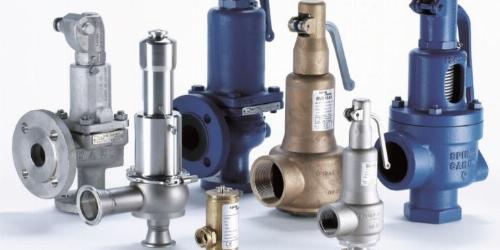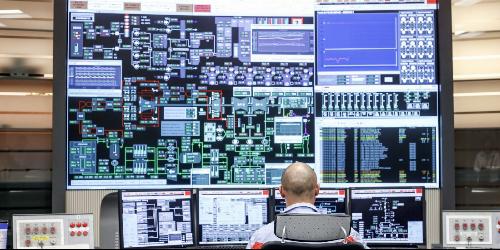The emergence of remotely controlled pressure valves has revolutionized the way industries manage their processes. These valves allow for greater control, flexibility, and safety in the operation of various systems. However, as with any critical piece of equipment, their proper functioning depends on regular maintenance and the ability to diagnose and repair any issues that may arise. A well-designed training program equips professionals with the necessary knowledge and skills to maintain, troubleshoot, and repair electric units in remotely controlled pressure valves effectively.
One such training program is the Remotely Controlled Pressure Valve Electric Unit Maintenance Training Program. This comprehensive course covers essential topics such as the fundamentals of pressure valves and their applications, electric actuator principles, inspection and preventive maintenance procedures, component repair and replacement, advanced troubleshooting techniques, and industry-specific standards and regulations. By offering hands-on training and practical exercises, this program ensures participants can apply their skills and knowledge in real-world situations.
The benefits of such a training program extend beyond the participants themselves. Proper maintenance of electric units in remotely controlled pressure valves can significantly improve the efficiency and reliability of industrial processes. This translates into reduced downtime, lower maintenance costs, and increased productivity. Additionally, by adhering to industry standards and implementing safety practices, companies can minimize the risk of accidents and create a safer working environment for their employees.
In conclusion, investing in a comprehensive training program for remotely controlled pressure valve electric unit maintenance is vital for professionals working in various industrial sectors. Such a program not only equips participants with the necessary skills to maintain and repair these critical components but also has a far-reaching impact on the efficiency, safety, and productivity of industrial operations. By embracing these training programs, companies and professionals can secure a competitive edge and ensure their long-term success in an ever-evolving industrial landscape.
• Maintenance Technicians and Engineers: Professionals responsible for the maintenance, troubleshooting, and repair of electrical and mechanical equipment in industrial settings, particularly those working with pressure valves and related systems.
• Instrumentation and Control Technicians: Technicians and engineers who specialize in the installation, maintenance, and calibration of instrumentation and control systems, including those used in remotely controlled pressure valves.
• Plant Operators and Supervisors: Individuals responsible for overseeing the operation and maintenance of industrial plants, who need to understand the maintenance requirements and best practices for remotely controlled pressure valves and their electric units.
• Mechanical and Electrical Engineering Students: Students pursuing degrees in mechanical or electrical engineering, who are interested in gaining practical knowledge and skills related to the maintenance of electric units in remotely controlled pressure valves.
• Industrial Electricians: Professionals working with electrical systems in industrial settings, who may encounter remotely controlled pressure valves as part of their job responsibilities.
• Safety and Quality Control Personnel: Individuals responsible for ensuring the safety, reliability, and compliance of industrial equipment and processes, who need to understand the maintenance and safety aspects of remotely controlled pressure valves.
• Valve Sales and Service Representatives: Professionals who work in sales or service roles related to valves and their components, and who would benefit from a deeper understanding of the maintenance and repair of electric units in remotely controlled pressure valves.
Participants should ideally have a basic understanding of electrical and mechanical principles, as well as some experience working with industrial equipment, in order to fully benefit from the course content.
- Understand the fundamental concepts and applications of remotely controlled pressure valves and their electric units
- Identify the components and principles of electric actuators used in remotely controlled pressure valves
- Perform routine inspections, preventive maintenance tasks, and lubrication to ensure the reliable operation of electric units in pressure valves
- Troubleshoot and diagnose common issues related to electric units in remotely controlled pressure valves using both basic and advanced techniques
- Disassemble, repair, and replace damaged or worn components in electric units, as well as reassemble and calibrate actuators
- Implement safety practices, including the use of personal protective equipment (PPE) and adherence to lockout/tagout (LOTO) procedures, to minimize risks during maintenance and repair tasks
- Accurately document and maintain records of maintenance activities, including logs, checklists, and incident reports
- Apply knowledge of legal requirements, industry standards, and best practices to ensure compliance in the maintenance and operation of remotely controlled pressure valves
- Utilize remote monitoring systems and data analysis tools to improve maintenance efficiency and enhance the overall performance of pressure valve systems
- Demonstrate practical skills in maintaining, troubleshooting, and repairing electric units in remotely controlled pressure valves through hands-on training exercises and assessments






- Overview of pressure valves and their applications
- Types of pressure valves and their components
- Introduction to remotely controlled pressure valves and their advantages
- Electric actuator principles and components
- Types of electric actuators and their applications
- Control and power supply systems
- Safety features and protective devices
- Routine inspection procedures and schedules
- Visual inspections and functional tests
- Preventive maintenance tasks and lubrication
- Troubleshooting common issues
- Disassembly and reassembly of electric units
- Diagnosis and repair of common electric unit failures
- Replacement of damaged or worn components
- Calibration and adjustment of electric actuators
- Importance of accurate documentation and record keeping
- Maintenance logs and checklists
- Tracking and planning preventive maintenance activities
- Incident reporting and analysis
- Practical exercises on inspecting, maintaining, and repairing electric units
- Troubleshooting and problem-solving scenarios












Training can take place in 4 formats:
- Self-paced
- Blended learning
- Instructor-led online (webinar)
- Instructor-led offline (classroom)
Description of training formats:
- Self-paced learning or e-Learning means you can learn in your own time and control the amount of material to consume. There is no need to complete the assignments and take the courses at the same time as other learners.
- Blended learning or "hybrid learning" means you can combine Self-paced learning or e-Learning with traditional instructor-led classroom or webinar activities. This approach requires physical presence of both teacher and student in physical or virtual (webinars) classrooms or workshops. Webinar is a seminar or presentation that takes place on the internet, allowing participants in different locations to see and hear the presenter, ask questions, and sometimes answer polls.
- Instructor-led training, or ILT, means that the learning can be delivered in a lecture or classroom format, as an interactive workshop, as a demonstration under the supervision and control of qualified trainer or instructor with the opportunity for learners to practice, or even virtually, using video-conferencing tools.
When forming groups of students, special attention is paid to important criteria - the same level of knowledge and interests among all students of the course, in order to maintain stable group dynamics during training.
Group dynamics is the development of a group in time, which is caused by the interaction of participants with each other and external influence on the group. In other words, these are the stages that the training group goes through in the process of communicating with the coach and among themselves.
The optimal group size for different types of training:
- Self-paced / E-learning: 1
- Instructor-led off-line (classroom): 6 – 12
- Instructor-led on-line (webinar): 6 – 12
- Blended learning: 6 – 12
- Workshop: 6 – 12
- On-the-job: 2 – 4
- Simulator: 1 – 2
Feedback in the form of assessments and recommendations is given to students during the course of training with the participation of an instructor and is saved in the course card and student profile.
In order to control the quality of the services provided, students can evaluate the quality and training programme. Forms of assessment of the quality of training differ for courses with the participation of an instructor and those that are held in a self-paced format.
For courses with an instructor, start and end dates are indicated. At the same time, it is important to pay attention to the deadlines for passing tests, exams and practical tasks. If the specified deadlines are missed, the student may not be allowed to complete the entire course programme.
A personal account is a space for storing your training preferences, test and exam results, grades on completed training, as well as your individual plan for professional and personal development.
Users of the personal account have access to articles and blogs in specialized areas, as well as the ability to rate the completed training and leave comments under the articles and blogs of our instructors and technical authors
Registered users of a personal account can have various roles, including the role of a student, instructor or content developer. However, for all roles, except for the student role, you will need to go through an additional verification procedure to confirm your qualifications.
Based on the results of training, students are issued a certificate of training. All training certificates fall into three main categories:
- Certificate of Attendance - students who successfully completed the course but did not pass the tests and exams can apply for a certificate of attendance.
- Certificate of Completion - students who have successfully completed a course could apply for a Certificate of Completion, this type of certificate is often required for compliance training.
- Verified Certificate - it is a verified certificate that is issued when students have passed exams under the supervision of a dedicated proctor.
You can always download a copy of your training certificate in PDF format in your personal account.
You will still have access to the course after completing it, provided that your account is active and not compromised and Tecedu is still licensed for the course. So if you want to review specific content in the course after completing it, or do it all over again, you can easily do so. In rare cases, instructors may remove their courses from the Tecedu marketplace, or we may need to remove a course from the platform for legal reasons.
During the training, you may encounter various forms of testing and knowledge testing. The most common assessment methods are:
- preliminary (base-line assessment) - to determine the current level of knowledge and adapt the personal curriculum
- intermediate - to check the progress of learning
- final - to complete training and final assessment of knowledge and skills, can be in the form of a project, testing or practical exam
Travel to the place of full-time training is not included in the cost of training. Accommodation during full-time studies can be included in the full board tuition fees.
While Tecedu is not an accredited institution, we offer skills-based courses taught by real experts in their field, and every approved, paid course features a certificate of completion or attendance to document your accomplishment.
You can preview samples of the training materials and review key information about the course on our website. You can also review feedback and recommendations from students who already completed this course.
We want you to be happy, so almost all purchased courses can be returned within 30 days. If you are not satisfied with the course, you can request a refund, provided the request complies with our return policy.
The 30-day money back policy allows students to receive quality teaching services with minimal risk, we must also protect our teachers from fraud and provide them with a reasonable payment schedule. Payments are sent to instructors after 30 days, so we will not process refund requests received after the refund period.
We reserve the right, in our sole discretion, to limit or deny refund requests in cases where we believe there is refund abuse, including but not limited to the following:
- A significant portion of the course has been consumed or downloaded by a student before the refund was requested.
- Multiple refunds have been requested by a student for the same course.
- Excessive refunds have been requested by a student.
- Users whose account is blocked or access to courses is disabled due to violation of our Terms and Conditions or the Rules of Trust and Security.
- We do not grant refunds for any subscription services.
- These refund restrictions will be enforced to the extent permitted by applicable law.
We accept most international credit and debit cards like Visa, MasterCard, American Express, JCB and Discover. Bank Transfers also may be an option.
Conducting classes is based on the fact that the teacher demonstrates text, drawings, graphics, presentations on an interactive board, while the content appears in the student's electronic notebook. A specially designed digital notepad and pen are used to create and edit text and images that can be redirected to any surface via a projector.
Classes are live streamed online, automatically recorded and published on the Learning Portal, allowing you to save them for reuse anytime, anywhere, on any mobile device. This makes it possible not to miss classes and keep up with classes and keep up with the passage of new material.
Real-life training uses the principles of game organization, which allows future professionals to rehearse and hone their skills in a virtual emergency. Learning as a game provides an opportunity to establish a connection between the learning activity and real life.
The technology provides the following learning opportunities:
- Focused on the needs of the user
- Instant feedback
- Independent decision making and choice of actions
- Better assimilation and memorization of the material
- Adaptive pace of learning tailored to the individual needs of the student
- Better transfer of skills learned in a learning situation to real conditions
Basic principles of training:
- A gradual increase in the level of difficulty in the game;
- Using a simplified version of a problem situation;
- Action in a variable gaming environment;
- The right choice is made through experimentation.
The main advantages of Game Based Learning technology:
- Low degree of physical risk and liability
- Motivation to learn while receiving positive emotions from the process;
- Practice - mirroring the real situation
- Timely feedback
- Choice of different playing roles
- Learning in collaboration
- Developing your own behavior strategy
Conducting practical classes online using remote access technologies for presentations, multimedia solutions and virtual reality:
- Laboratory workshops that simulate the operation of expensive bench equipment in real production
- Virtual experiment, which is visually indistinguishable from a remote real experiment performed
- Virtual instruments, which are an exact copy of real instruments
- Mathematical modeling to clarify the physical characteristics, chemical content of the investigated object or phenomenon.



















